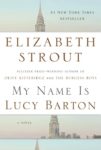LibraryReads Favorite of Favorites 2016
Thursday, December 1st, 2016
 The votes are in for the books library staff most enjoyed sharing with readers in 2016 and for the second year in a row, the LibraryReads Favorite of Favorites top vote earner is a psychological suspense novel, Ruth Ware’s sophomore hit, The Woman in Cabin 10 (S&S; S&S Audio; OverDrive Sample).
The votes are in for the books library staff most enjoyed sharing with readers in 2016 and for the second year in a row, the LibraryReads Favorite of Favorites top vote earner is a psychological suspense novel, Ruth Ware’s sophomore hit, The Woman in Cabin 10 (S&S; S&S Audio; OverDrive Sample).
“An intruder in the middle of the night leaves Lo Blacklock feeling vulnerable. Trying to shake off her fears, she hopes her big break of covering the maiden voyage of the luxury cruise ship, the Aurora, will help. The first night of the voyage changes everything. What did she really see in the water and who was the woman in the cabin next door? The claustrophobic feeling of being on a ship and the twists and turns of who, and what, to believe keep you on the edge of your seat. Count on this being one of the hot reads this summer!” — Joseph Jones, Cuyahoga County Public Library, OH
In 2015 the winner was Paula Hawkins’s The Girl On The Train. Ware is often compared to Hawkins, as did Vicki Nesting, St. Charles Parish Library, Destrehan, LA in her annotation of Ware’s debut novel, In A Dark, Dark Wood when it was included as a LibraryReads pick in 2015.
Librarians were early advocates of Ware, who is becoming a marquee author. Not only have both her novels been LibraryReads picks, both were Galleychat favorites (here too).
Look for more from Ware on the horizon. She signed a deal with her British publisher for two more books, to be released in the summers of 2017 and 2018 and Reese Witherspoon acquired the film rights to her debut.
The second top vote earner is  Commonwealth by Ann Patchett (HC/Harper; Harper Audio; OverDrive Sample).
Commonwealth by Ann Patchett (HC/Harper; Harper Audio; OverDrive Sample).
“The Cousins and the Keatings are two California families forever intertwined and permanently shattered by infidelity. Bert Cousins leaves his wife for Beverly Keating, leaving her to raise four children on her own. Beverly, with two children of her own, leaves her husband for Bert. The six children involved are forced to forge a childhood bond based on the combined disappointment in their parents. As adults, they find their families’ stories revealed in a way they couldn’t possibly expect. Patchett has written a family drama that perfectly captures both the absurdity and the heartbreak of domestic life.” — Michael Colford, Boston Public Library, Boston, MA
As we noted, the novel marks a high point in Patchett’s selling history, with Commonwealth debuting at #4 on the USA Today Best-Selling Books list, her highest ever opening number. According to the paper, Bel Canto reached #8 in 2003 but debuted at #70 and State of Wonder hit, and peaked, at #12. The novel also debuted at #1 on the NYT list, another first for the author who has had bestsellers in the past, “most notably,” according to the NYT “Bel Canto (16 weeks on the paperback fiction list in 2002-3) and State of Wonder (35 weeks on the hardcover and paperback fiction lists in 2011-12).”
A darling of critics. it is on many of the year-end best books lists (downloadable spreadsheet here) and earned glowing reviews. The daily NYT called it “exquisite.” Patchett is also a Hollywood draw, Bel Canto is in development as a movie starring Julianne Moore (announced in 2012, there has been no news since, but it is still listed as in development on IMDb).
Rounding out the top vote-getters is  My Name Is Lucy Barton, Elizabeth Strout (PRH/Viking; OverDrive Sample).
My Name Is Lucy Barton, Elizabeth Strout (PRH/Viking; OverDrive Sample).
“Set in the mid-1980s, Lucy Barton, hospitalized for nine weeks, is surprised when her estranged mother shows up at her bedside. Her mother talks of local gossip, but underneath the banalities, Lucy senses the love that cannot be expressed. This is the story that Lucy must write about, the one story that has shaped her entire life. A beautiful lyrical story of a mother and daughter and the love they share.” — Catherine Coyne, Mansfield Public Library, Mansfield, MA
A critical favorite too, it made the National Book Award, the Man Booker Prize, and the Baileys Women’s Prize for Fiction Longlists. For more from Strout see this recent Book Lust interview with Nancy Pearl.
The full list of the ten favorite picks is now available online.

